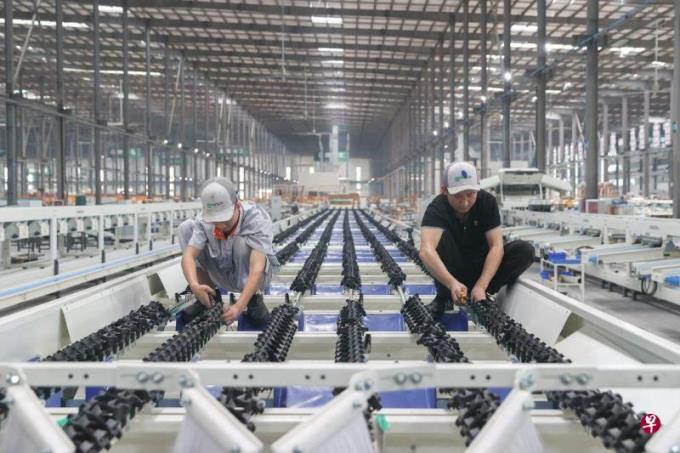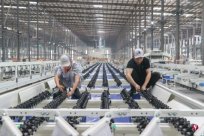
The Chinese manufacturing industry has shrunk for five consecutive months, and the weak economic data has impacted the market emotions that have stabilized and stabilized.However, the analysis believes that the Chinese economy has expressed signs of stabilization. If it can continue the current trend, investor confidence will gradually improve.
The data released by the National Bureau of Statistics of China on Thursday (August 31) showed that the manufacturing procurement manager index (PMI) in August was 49.7, which was higher than 49.3 in July, but it was still less than 50.This is the third consecutive month of manufacturing activities in the manufacturing activity, but it is also the fifth consecutive month in the contraction range.
From the perspective of the sub -item index, the August production index and the new order index have reached a new high in nearly five months, of which the new order index has expanded for the first time since April this year.However, the new export order index is lower than the Rongku line for five consecutive months, indicating that market demand is mainly driven by domestic demand.
Zhao Qinghe, a senior statistician of the Service Industry Investigation Center of the National Bureau of Statistics, pointed out that the results of the investigation show that insufficient market demand is still the main problem facing the current enterprise. The foundation of manufacturing to restore the development of development must be further consolidated.
On the other hand, although the non -manufacturing business activity index, including the construction and service industry, has been expanded in August, it decreased by 0.5 percentage points to 51 from July, which is a new low this year.
Wang Jun, chief economist of Huatai Assets Wang Jun, pointed out in an interview with Lianhe Morning Post that although the PMI of the manufacturing industry is still atrophic, various indicators indicate that the industry confidence is gradually recovering.This also confirms this.If this trend can continue, PMI is expected to expand in October.
Wang Jun believes that since the meeting of the Politburo of the Communist Party of China at the end of July, the official densely introduced stimulus measures were introduced, from the property market to the stock market, from personal tax to local debt.It is expected that the support policy will be further introduced for the real economy, real estate and capital markets.
China officially announced a series of measures for active capital market last weekend, including halving stock stamp duty, tightening listing, restrictions, etc. This week, it has accelerated the loosening of the property market, which drives the Lukang stock indexOnly two days lasted.
The Lukang stock market fell again on the last trading day in August. The CSI 300 Index closed 0.61 % to 3765.27 points on Thursday, and the Hang Seng Index slipped 0.55 % to 18382.06 points.
In the past month, the Hang Seng Index has fallen by more than 8 %, which is shown in the bottom of the world's major stock indexes.Overseas funds accelerated out of A shares. In August, the cumulative net sales of funds in the north sold for a total of 89.683 billion yuan (RMB, the same below, S $ 16.63 billion).There are new highs since records.
Fu Fangjian, an associate professor of Li Guangqian Business School of Singaporean Management University in an interview, said in an example that relying on measures such as reducing stamp duty to boost the stock market, just like applying ice packs during a fever. Although it can be temporarily cooled, if the disease is not fundamentally cured, the temperature of the body is stillWill rise again."The stock market is like the thermometer of the economy.
Fu Fangjian is optimistic that the recently introduced stimulus policy can drive the Chinese economy out of the trough, but he also pointed out that from the implementation of various policies to effective, the market will take a while from receiving digestive signals.If the investment, exports and consumption data in September have improved, the stock market is expected to bottom out."For the economy and stock market, the medium and long -term trend is still optimistic, but it is inevitable to have some bumps in the short term."
Wang Jun also believes that the continuous decline in the stock market has made investors' mentality more pessimistic, and more macro data support is needed to change expectations."More economic data will be announced next week. If you can have more positive data support, investor confidence will gradually recover."



